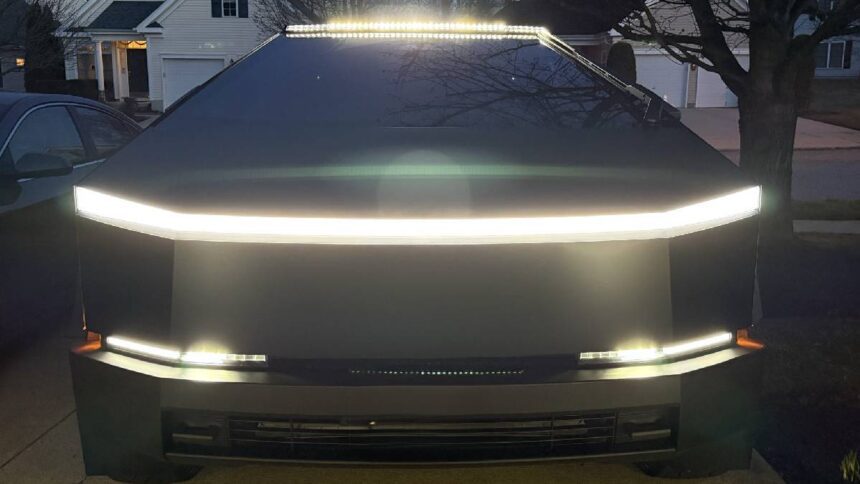Tesla is recalling more than 63,000 Cybertrucks in the U.S. because their front lights are excessively bright, potentially distracting other drivers and increasing the risk of a collision.
The National Highway Traffic Safety Administration (NHTSA) stated that the recall includes certain 2024 to 2026 model year Cybertrucks. The affected vehicles were manufactured between November 13, 2023, and October 11, 2025, and are running operating software versions prior to 2025.38.3. The agency noted that Tesla is currently not aware of any collisions, injuries, or fatalities related to this specific condition.
Tesla, run by billionaire Elon Musk, is addressing the issue by issuing a free over-the-air software update to correct the brightness.
Ongoing regulatory scrutiny
This latest recall comes as Tesla faces mounting regulatory pressure:
- Full Self-Driving (FSD) Probe: This month, federal officials launched a new investigation into Tesla’s Full Self-Driving (FSD) feature. This came after many reports of cars running red lights and even driving on the wrong side of the road. These dangerous incidents have resulted in more than a dozen accidents and fires, causing injuries to nearly two dozen people.The NHTSA stated in a filing that it is investigating 58 such incidents where Teslas reportedly violated traffic safety laws while using the FSD mode.
- Previous Cybertruck Recall: In March, U.S. safety regulators recalled virtually all Cybertrucks on the road at the time. That NHTSA recall, which covered over 46,000 Cybertrucks, warned that an exterior panel along the windshield could detach while driving, creating a dangerous road hazard and increasing the risk of a crash.
The cumulative effect of these probes and recalls could significantly undermine Musk’s plans to turn millions of his cars already on the road into completely driverless vehicles via a simple software update.
Financial Performance Update
In separate news, Tesla reported a fourth straight decline in quarterly profit on Wednesday, despite an increase in sales.
The automaker’s third-quarter earnings plunged 37 percent to $1.4 billion (or 39 cents a share), down from $2.2 billion (or 62 cents a share) a year earlier. While the rise in revenue provided a welcome relief after a sales plunge earlier in the year due to anti-Musk boycotts, it came with a significant caveat: Customers had rushed to take advantage of a $7,500 federal EV tax credit before its October 1 expiration, potentially “stealing” sales from the current quarter.
ALSO READ: Tata Nexon gets ADAS and Red Dark Edition: Check variant-wise price and other details here










